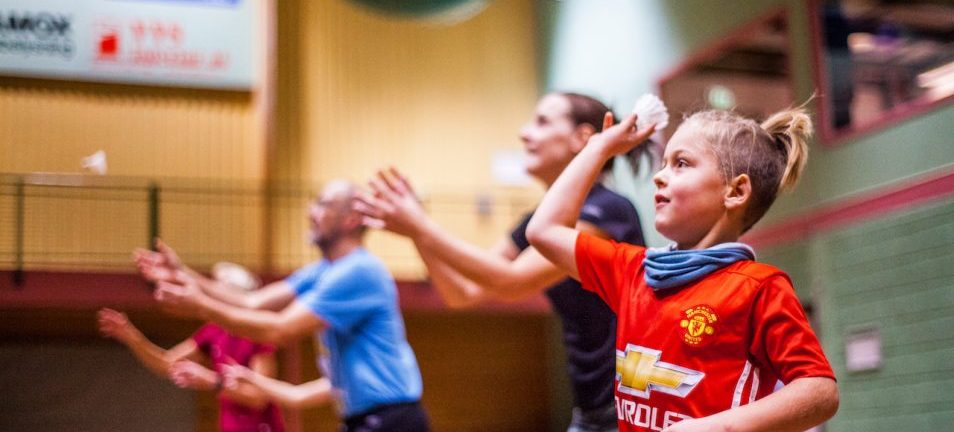

BWF Shuttle Time has been proven to positively impact the health and well-being of school children, following a six-week study of two age groups (6-7 years and 10-11 years).
Conducted in the UK last year, this evaluation focused on scientifically assessing if Shuttle Time enhances fundamental movement skills (FMS) in children. Results showed that Shuttle Time improved the body mass index (BMI) of children in both age ranges, while also having long-term benefits on the motor competence of children aged 6-7 years only.
Such findings stemmed from data comparisons by researchers at Coventry University between children who underwent the Shuttle Time intervention and control groups which had physical education lessons also focusing on the development of object control skills. The aim was to match the focus of the sessions between the two groups in either age range.
The Shuttle Time groups undertook a structured Shuttle Time programme in place of one of their two weekly statutory PE sessions. Shuttle Time children therefore engaged in one Shuttle Time and one PE session per week. The control groups attended their two statutory PE classes per week. At the conclusion, all participants were assessed for FMS, weight status, motor fitness and motivation for physical activity.
The study – entitled The Effectiveness of the BWF Shuttle Time Programme on Children’s Fundamental Movement Skills – concluded that “the results support the assertion that Shuttle Time enhances FMS and is superior to statutory PE”.
“Irrespective of age stage, BMI decreased for children who undertook Shuttle Time intervention in lieu of one of their statutory PE lessons per week, from pre-post, compared to the control group. Such a change is positive and suggests participation in Shuttle Time may help to maintain healthy weight in children,” it continued.
In addition, the results highlighted that Shuttle Time “was considerably more effective for younger children (ages 6-7 years), compared to older children (ages 10-11) years”.
BWF Chair – Development & Sport For All Committee, David Cabello, was delighted with the outcomes of the project, which was supported by funding from the BWF Sports Science Commission.
“The key message from this is that BWF Shuttle Time is particularly beneficial in developing fundamental movement skills and motor fitness for children who have not yet matured their FMS,” he said.
“Shuttle Time can be a fun and safe catalyst to get young children into sport activity. Apart from this study, we have seen thousands of children globally embrace and enjoy the programme.
“We are committed to growing badminton at a grassroots level and we can use these results to further promote the benefits of Shuttle Time and badminton as a whole.”
Cabello lauded the research team for “helping to build our badminton knowledge” as part of the BWF Sports Science Commission’s mandate to encourage and widen interest and investment in applied research in badminton.
“We want to improve the quality and quantity of scientific material available to players, coaches and badminton practitioners across the spectrum of our sport, and these types of studies are contributing significantly in that regard.”
*****NOTE:
Four classes from two schools in central England were selected for this study. The schools involved were comparable in terms of ethnic makeup and were all within the mid-range of socio-economic status for the county in which they were based. The children (124 in total) were drawn from School Year 2 (ages 6-7) and School Year 6 (ages 10-11) so that the study could not only assess the effect of the Shuttle Time intervention compared to the control group but also examine if the effects of the intervention differed depending on the stage of childhood from early to middle childhood.
DEFINITIONS:
BMI (body mass index) is the measurement of body fat based on height and weight and is used as an indicator of obesity and underweight.
MC (motor competence) is the mastery of physical skills and movement patterns that enable participation in physical activities.
FMS (fundamental movement skills) is an aspect of MC considered to be the building blocks that lead to specialised movement sequences required for adequate participation in many organised and non-organised sports and physical activities in children and adolescents.
SHUTTLE TIME:
Since its launch in 2012, Shuttle Time has continued its global expansion with an increasing number of BWF member associations embracing the development initiative. Among those which have started Shuttle Time in the past year are Eritrea (Africa), Kirgizstan and Myanmar (Asia), Belgium and Moldova (Europe), and Bolivia and Venezuela (Pan America). In total, there are now 135 Shuttle Time implementations: Africa (24); Asia (35); Europe (37); Oceania (12); and Pan Am (28). Shuttle Time resources are available in 19 languages, with Bengali, Dutch and Nepalese versions in production.[/vc_column_text][/vc_column][/vc_row]























